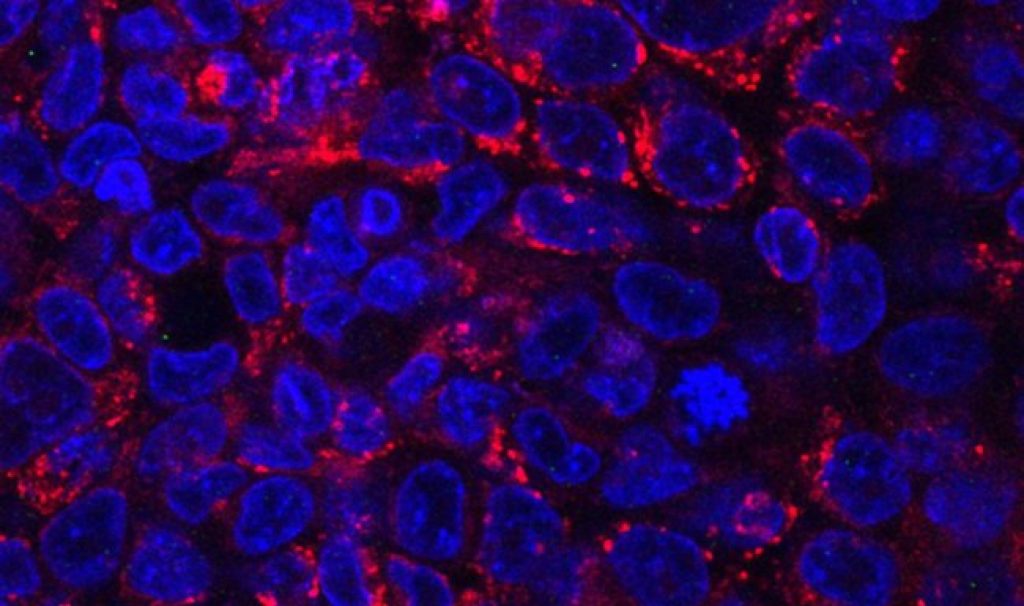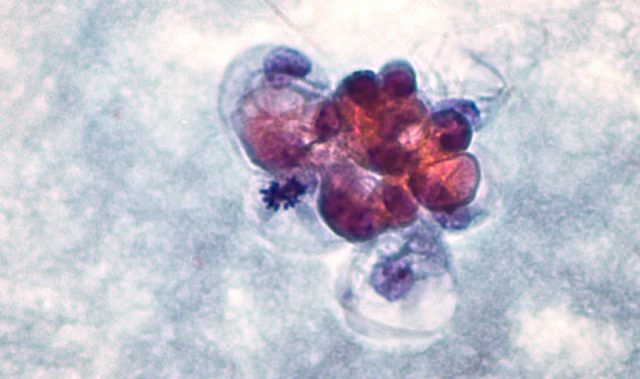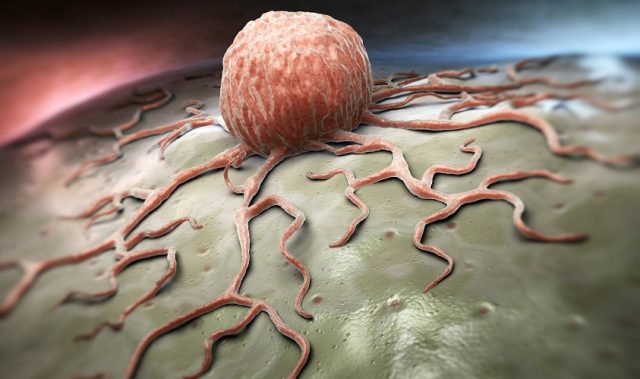
AsianScientist (Apr. 1, 2015) – By combining an old anti-malarial drug with an experimental enzyme inhibitor, researchers have hit upon a synergistic treatment for colon and bladder tumors in mice. Their research, published in the Journal of Clinical Investigation, could lead to more effective treatments for common cancers.
In its mutated form, the notorious RAS oncogene drives about 30 percent of all human cancers. Certain RAS-driven cancers are supported by enhanced autophagy, a normally tightly regulated process by which cells recycle essential proteins and nutrients. Several studies have therefore investigated the use of autophagy inhibitors to treat cancer, however, the results have been mixed and appear highly context dependent.
In the present study, a team led by Professor David Virshup and Dr. Cheong Jit Kong from Duke-NUS Graduate Medical School Singapore found that RAS controls autophagy via an enzyme called casein kinase 1 alpha (CK1α). They showed that the activation of RAS led to an increase in the levels of CK1α protein, which in turn reduced the levels of autophagy.
While either blocking CK1α with the experimental drug D4476 or inhibiting autophagy with the old anti-malarial drug chloroquinine killed four to five percent of the cancer cell line tested, almost 40 percent of the cells treated with both D4476 and chloroquinine were killed. In mice bearing human colon or bladder tumors, the combination of D4476 and chloroquinine synergistically inhibited tumor growth.
“To our knowledge, this is the first report that shows the combined pharmacological targeting of CK1α and autophagy can be used to combat these types of cancer,” said first author, Cheong. “Our findings provide the mechanistic basis of exploring combination therapies involving pharmacological targeting of CK1α and autophagy.”
The team speculates that the new drug combination therapy could help to slow down or cure some human cancers with mutant RAS, such as those that originate from the colon and the bladder. They also infer that patients with pancreatic cancers and some lung cancers may benefit from this drug combination therapy as the RAS oncogene is frequently mutated in these cancers.
“This is an exciting lead. We hope to identify more potent and specific inhibitors of CK1α to combine with autophagy inhibitors,” said senior author Virshup, who is the Director of the Cancer and Stem Cell Biology Program at Duke-NUS. “If these drug combination therapies are effective in rigorous clinical trials, it may be effective in patients with cancers that carry activating mutations of the RAS oncogene.”
The article can be found at: Cheong et al. (2015) Casein Kinase 1α–Dependent Feedback Loop Controls Autophagy in RAS-Driven Cancers.
———
Source: Duke-NUS Graduate Medical School.
Disclaimer: This article does not necessarily reflect the views of AsianScientist or its staff.












